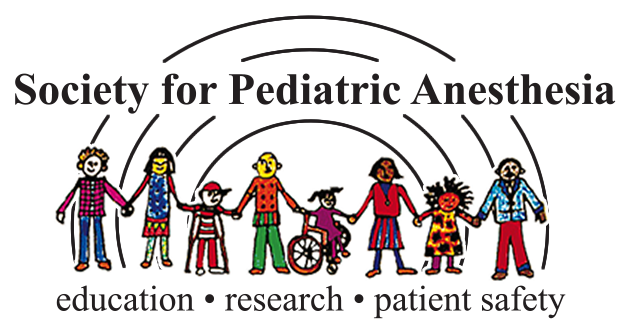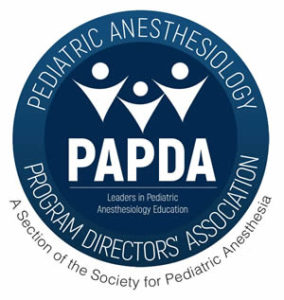PAINTS: Pediatric Anesthesiology Internet-based Non-Technical Skills
The PAINTS curriculum was created in response to determined need from across the SPA/PAPDA (Pediatric Anesthesiology Program Directors’ Association) community. This collection of short, asynchronous, recorded content includes over 40 lectures divided into 8 non-clinical domains. While the primary purpose of the curriculum is optimizing the non-clinical aspects of education for Pediatric Anesthesiology fellows, the content is freely available to any other fellows or other community members.
The full list of domains and lectures is shown below for informational purposes.
Accessing content on OpenAnesthesia requires a free registration and creation of a log in and password. The PAINTS curriculum can be accessed on the OpenAnesthesia website (www.openanesthesia.org) by clicking on the vodcast tab and selecting the PAINTS curriculum filter on the left side of the screen or selecting the Pediatric Anesthesia filter under the Sections tab and selecting the PAINTS curriculum filter.
| Lecture ID | Title of this 15-minute session |
| Patient Safety Domain | |
| PS-1 | Patient Safety in and out of the operating room |
| PS-2 | Medication Safety Principles |
| PS-3 | Medication Errors: Recognition and what to do when they happen |
| PS-4 | Department Reviews, ACA, and RCA |
| PS-5 | Protocols, Guidelines, and Pathways |
| PS-6 | Safety metrics: how do we know we are safe? |
| PS-7 | Keeping yourself safe at work |
| PS-8 | Psychological Safety at Work |
| PS-9 | Patient Advocacy in the hospital and in society |
| Quality Improvement Domain | |
| QI-1 | QI Fundamentals |
| QI-2 | QI Methodology |
| QI-3 | QI Collaboration and Knowledge Sharing |
| QI-4 | EBM for anesthesiologists |
| Research Methods Domain | |
| RM-1 | Basics of Research |
| RM-2 | Basics of Research: Research Ethics |
| RM-3 | Pursuing Research: Getting Started |
| RM-4 | Basics of Research: Study Design |
| RM-5 | Basics of Research: Bias and Cognitive Errors |
| RM-6 | Basics of Research: Data Interpretation |
| RM-7 | Pursuing Research: Writing and Submitting an Abstract |
| RM-8 | Pursuing Research: Writing and Submitting a Manuscript |
| Medical Education Domain | |
| ME-1 | Principles of Medical Education |
| ME-2 | Small group and clinical teaching |
| ME-3 | Didactic Teaching to avoid “Death by PowerPoint” |
| ME-4 | Professional Development |
| ME-5 | Understanding the Pediatric Population |
| Supervision Domain | |
| SV-1 | Supervision |
| SV-2 | Procedural Supervision |
| SV-3 | Evaluation and Feedback in the Clinical Setting |
| Communication Skills Domain | |
| CS-1 | Communication: The Importance of Active Listening |
| CS-2 | Counseling Pediatric Patients and Families |
| CS-3 | Consent, Assent, and Parental Permission in Pediatric Anesthesia |
| CS-4 | Crisis Resource Management |
| CS-5 | When Mistakes Happen – Error Reporting and Breaking Bad News |
| CS-6 | Personal Wellness: Communication Strategies |
| Leadership Skills Domain | |
| LS-1 | Leadership |
| LS-2 | Conflict Management and Resolution |
| LS-3 | Second Level Leadership |
| LS-4 | Personal Wellness: Burnout Prevention Strategies for Leaders at all levels |
| Practice Management Domain | |
| PM-1 | Business of Medicine: Contracts |
| PM-2 | Business of Medicine: Management |
| PM-3 | Business of Medicine: Management |
| PM-4 | Business of Medicine: Handling Dilemmas |
| PM-5 | Leading and Working with Teams |
| PM-6 | Professionalism in Pediatric Anesthesiology |

